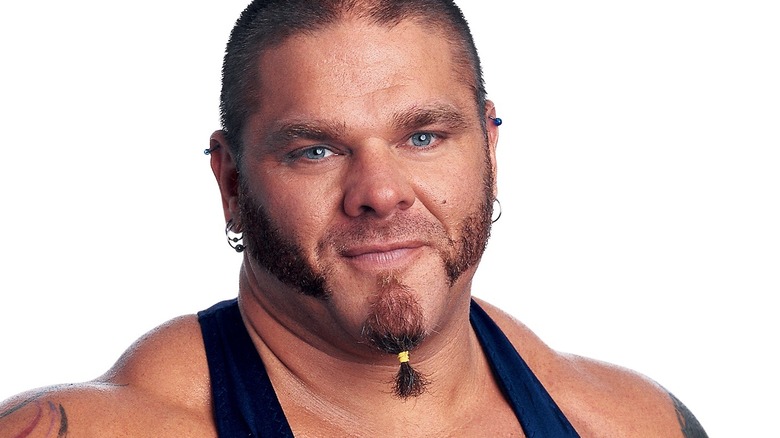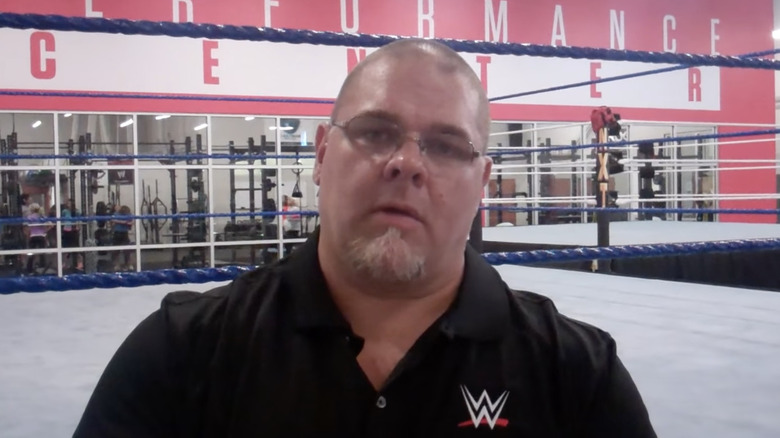Bill DeMott Says Many FCW And Indie Veterans Had Trouble Transitioning To WWE NXT
Until the opening of the WWE Performance Center in July 2013, WWE's talent development program was not run in-house. Instead, WWE would contract a wrestling school that had its own promotion to handle the program day to day, with Danny Davis's Ohio Valley Wrestling being the most famous and Steve Keirn's Florida Championship Wrestling being the last, before it was replaced by the in-house WWE Performance Center. Recently, former Performance Center head coach Bill DeMott appeared on "Developmentally Speaking" to talk about his time as a trainer, including how the changes made to the program when it was brought in-house were a difficult adjustment for many of the talent.
"The training and the preparation was gonna change, because you have a gym ... modeled after the New York Giants football team; that's how impressive this was," DeMott explained. What we implemented was: There was new talent, there's talent that had been there, and there's talent that we needed [to be] TV-ready. 'TV-ready' meaning not just for ['NXT' tapings at] Full Sail, [but] to go up to the main roster, because it was a developmental system." DeMott noted that the move to the Performance Center, with twice as many rings as well as time allotted for more promo classes and tape study classes, allowed everyone to get more personal attention from the coaches than they had in FCW.
"The change was amazing, and at the same time, it wasn't what the grizzled veterans of developmental were used to," he added. "Because now their schedule changed. It used to be you were there for three hours, and the other 21 hours a day were yours. Well now, there was expectations of 'Hey, your day may start at 8:00 [a.m.] and it's not gonna end until 4:00 [p.m.] I think that was a lot of the unhappiness of being paid $45,000, $55,000, $65,000 a year and going home, and now you were expected to actually be in the building and working on your craft."
DeMott: 'If this isn't for you, I get it.'
As DeMott explains it, at least, some developmental talent saw the changes that came with the move to the Performance Center as punishment, as a lot more was being asked of them. In some cases, the differences were pretty extreme.
"Unfortunately, there were guys and girls in the system that had been there six years and no one knew their names," he explained. "When I got to FCW, there was four people on their roster, on their attendance list, that no one had seen in a year and a half." He added that he would always ask talent if they would go to the Performance Center if they weren't being paid, and 90% said no.
"It was the long game," he continued. "And this is where it got muddy, because you had some independent guys making a great living, made a name for themselves, came into NXT or came into the Performance Center, and they want to know, 'Why do I have to do this again?' And my answer was, 'If you're happy where you are, and you're making money, you're making your schedule, you're loving life, and you're loving wrestling, this is not the place for you.' I was very honest. But if you want to be here and get the opportunity to be who you can be and who you want to be, this is the way it's done." It took a lot of one-on-one conversations with talent to convince them to stick with the system after previously having made a full-time living on the indies.
"If this isn't for you, I get it. Go have fun at what you're doing," he said. "You don't have to be here."
If you use any of the quotes in this article, please credit "Developmentally Speaking" with a h/t to Wrestling Inc. for the transcription.

